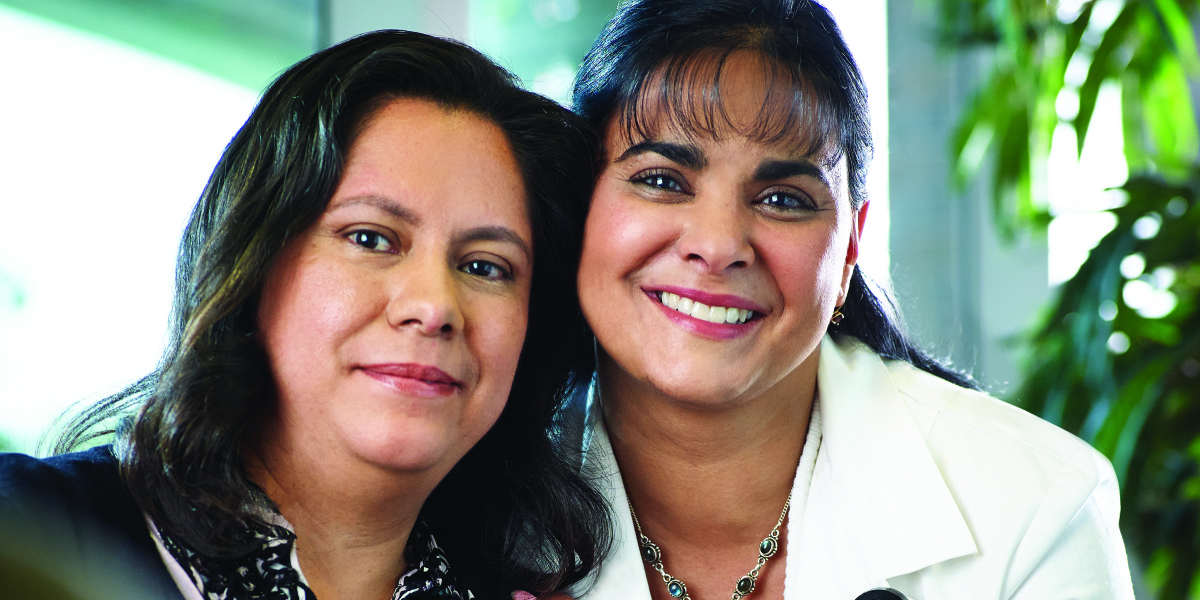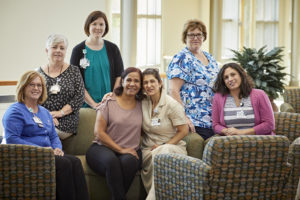Sandra Aguilera was worried about her health and did not know how to overcome what seemed like insurmountable barriers to care.
A native of Mexico, Aguilera is a 36-year-old mother of two who lives in Wilmington. She does not speak English. She has no health insurance. She also has a family history of colon cancer. Her maternal grandfather, maternal aunt and cousin on her mother’s side of the family died from the disease. Her mother had surgery in 2011 to prevent thousands of polyps in her colon from progressing to cancer.
We are trying to make sure there are no barriers to care. Reaching out to Hispanics and other populations is equalizing access, allowing us to identify high-risk patients and take action.”
“I had some bleeding and thought it was hemorrhoids,” Aguilera said, speaking through a Christiana Care certified medical interpreter. “But the medications weren’t helping and I needed a colonoscopy.”
At the Helen F. Graham Cancer Center & Research Institute, Aguilera gained access to tests, treatment and genetic counseling, all focused on saving her life and potentially the lives of other family members.
Medical interpreters kept the lines of communication open. She had a colonoscopy, paid for by the Screening for Life program. The test revealed multiple polyposis syndrome, a condition that occurs in as many as one in 7,000 individuals.
“People with this syndrome tend to form hundreds to thousands of polyps in the colon,” said Zohra Ali-Khan Catts, MS, LCGC, director of Cancer Genetic Counseling. “When you have that many polyps it’s extremely difficult for a surgeon to remove them all.”
Ali-Khan Catts leads a team of five genetic counselors at the Graham Cancer Center. The team is extending access to care to underserved neighbors throughout the state, working closely with Christiana Care’s Wilmington Family Medicine practice, the HIV program and the Community Health Access Program, Beebe’s Tunnell Cancer Center in Lewes and Nanticoke Cancer Center in Seaford, and federally qualified health centers such as Westside Family Healthcare. Since 2002, the team has provided genetic counseling to more than 5,700 patients across Delaware, with more than 3,400 choosing to be tested.
“We are trying to make sure there are no barriers to care,” she said. “Reaching out to Hispanics and other populations is equalizing access, allowing us to identify high-risk patients and take action.”
Based on the results of her tests, Aguilera underwent preventive surgery to remove her colon and rectum before they became cancerous.
“The surgeon said that they needed to be removed as soon as possible,” she said.
She also had an endoscopy, in which a lighted flexible instrument was guided into her stomach. “The stomach had a whole lot of polyps, too,” she said.
Aguilera now gets an endoscopy every six months to monitor the number of polyps in her stomach. Health coaches at Christiana Care’s Community Health Access Program identified resources to help pay for her care. They also guided her to a low-cost prescription program at Walmart.
“Without Screening for Life and the other programs, she would not have had access to the care she needs,” Ali-Khan Catts said.
The genetic counseling team at the Graham Cancer Center is now working with four other branches of Aguilera’s family to determine who is at risk for multiple polyposis syndrome, as well as hepatoblastoma, a childhood liver cancer.
Aguilera has two sons, ages 9 and 14. It is not yet known what gene is producing the polyps that have devastated the family. So the team recruited a partner to help crack the code.
“We are working with a lab company to see if we can get testing done to identify the mutation,” Ali-Khan Catts said. Aguilera and her extended family will continue to receive expert, respectful care at the Graham Cancer Center.
“Everyone explains things to me so that I understand, and that helps a lot,” she said. “I am thankful for the caring people at Christiana Care.”



